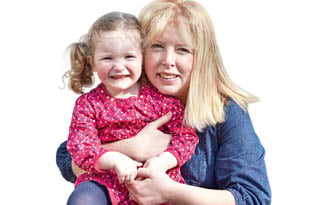Why might I need a lung function test?
Your doctor may have asked you to have one if you’ve been having breathing problems. Some people have symptoms of breathlessness or wheezing, where it can be difficult to know whether the cause is due to a heart or lung condition. These tests can help with diagnosis or suggest which other tests you might need.
They are also often done before having heart surgery, so the doctors can make sure your lungs are strong enough to cope with the operation.
Where will I have a lung function test?
Most lung function tests are done in a hospital outpatient department, as patients who are in hospital may need to have these tests too. Some may be done at your GP surgery.
Do I need to do anything to prepare?
You will be given information but, in general, wear loose, comfortable clothes as you may get hot.
Wear loose, comfortable clothes as you may get hot.
Beforehand, don’t smoke for at least 24 hours, avoid alcohol for at least four hours, don’t eat a large meal for two hours beforehand and don’t exercise for 30 minutes, as these could affect the test results.
How quickly will I get the results from the lung function test?
You will normally be given a printout of your results straight away, which you can take to show your GP or specialist. If they are done as part of a pre-assessment before heart surgery, you will be able to hand them to the healthcare professional looking after you.
Are there any risks to having a lung function test?
These tests are very safe, but as with any tests there are some minor risks. These can include feeling dizzy, short of breath or coughing. A new mouthpiece will be used for every patient, and other parts of the equipment cleaned or disinfected, to avoid any risk of contamination.
Is there anyone who shouldn’t have a lung function test?
You may be advised to wait to have a lung function test if you have had:
This is to reduce your risks.
What are the main types of lung function test?
There are quite a few types, but those listed below are the main ones you might encounter if you are waiting for surgery, or if you have symptoms (such as breathlessness) that could be caused by heart or lung disease.
-
Spirometry
This is a test to show how quickly you can empty the air from your lungs. Your results will be compared with results from healthy people: this helps to measure any narrowing in your airways. You may have a clip on your nose so that air cannot escape.
You will then be asked to breathe in as much as you can, and then out as hard and fast as you can.
Normally you are asked to breathe in deeply and out gently into the mouthpiece of the spirometer. You will then be asked to breathe in as much as you can, and then out as hard and fast as you can.
It is normal to be asked to do this several times to get the best result. It usually takes about 10 minutes. Sometimes you will be asked to repeat the test after taking an inhaler or other medication.
-
Lung volume tests
This test measures your lung capacity. It gives the doctors more information on how well your lungs can expand with each breath, and whether they empty normally or whether obstructions in your airways mean that more air than usual is left inside.
You will sit in a large transparent cubicle with a clip on your nose. You will breathe quickly for a few seconds, into a mouthpiece, and then in and out as far as you can. If you don’t like small spaces, you may find this difficult. The technician will guide you through the test – let them know if you are feeling anxious. It only takes a few minutes.
-
Gas transfer (or TLco) test
This measures how well your lungs can take up oxygen from the air.
You will be asked to wear a nose clip and, through a mouthpiece, to take a deep breath of air mixed with very small and harmless amounts of helium and carbon monoxide. You’ll need to hold your breath for about 10 seconds and then breathe out normally.
The level of gas that you breathe out will be measured to see how much oxygen has been carried from your lungs into your blood. The test takes about 10 minutes.
Meet the expert
Suzanne Thomas has over 30 years' experience in respiratory physiology at the Royal Brompton Hospital where she manages one of the largest lung function units in the country.








